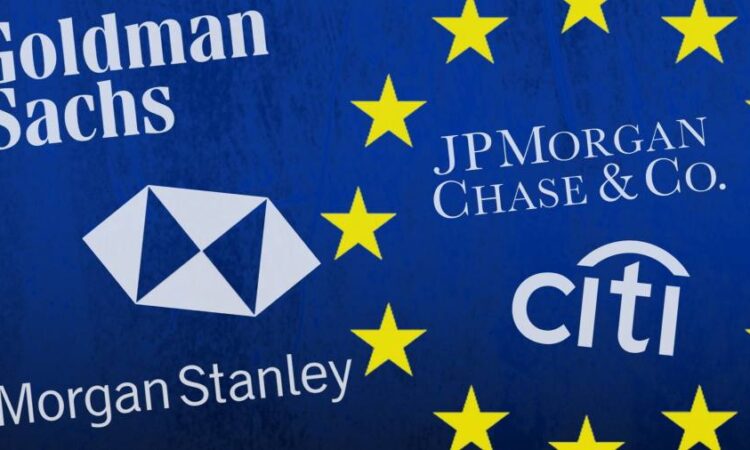
The world’s biggest investment banks are growing increasingly alarmed about a looming crackdown by Brussels on their ability to sell services into the EU.
In late 2021, Europe backed away from plans to ban so-called cross-border access, with banks furious at the prospect of having to move capital and liquidity into the EU, rather than fund business using their global balance sheets.
However, a clampdown on cross-border selling is once again under active discussion as the EU tries to assert greater control over its financial markets. The European Council, parliament and commission are close to finalising a deal that would curb access as part of a broader package ostensibly designed to introduce the latest Basel rules on global bank capital.
“It’s becoming part of the end game of the conversations and a deal will be about how many restrictions to their services banks will face,” said a person familiar with the discussion, adding that a decision was expected by Thursday at the earliest. However, others cautioned that a deal could still fall through.
Earlier this month, officials circulated a technical paper outlining a range of options for the crackdown and banks see some form of restrictions as inevitable.
“It’s a big deal, we’re talking big numbers if this lands in the wrong place,” said an executive at a large international bank, echoing concerns shared privately by Citigroup, HSBC, JPMorgan Chase, Morgan Stanley and Goldman Sachs.
The proposals fall short of the original ban but large international banks say they remain very concerned about the impact of the measures on their businesses, particularly on their ability to do big trades in small countries or with obscure currencies.
“It’s difficult to say how difficult this will be,” said an executive at a second large bank, adding that it could be either “costly but liveable . . . or completely unworkable”.
One compromise under discussion in Brussels involves narrowing the scope of the ban so there would be broader exemptions for “reverse solicitations”, where a foreign bank is asked to provide a service in the EU rather than offering to do a deal.
“That fundamentally does not work,” the first executive said, since the concept of reverse solicitation means a client has to proactively seek a service, which is hugely restrictive.
Other options include specifying certain products that cannot be offered by foreign banks into the EU, including things such as deposits and lending.
Banks say this is problematic because they could end up accidentally offering some of those services, if for example they carry out a wholesale trade for a client and end up with a residual cash balance, which could be considered a deposit.
Lenders argue that instead there should be a complete exemption for corporate or professional clients who rely on global banks to provide services and who are well-positioned to judge the risk of buying those services from a bank based outside the EU.
An executive at another bank said the EU did not understand the impact of its proposals on capital markets. Germany, which has become a hub for capital markets activity in the aftermath of Brexit, continues to push for a more proportionate approach on restricting the provision of banking services in the EU by third-country banks, two bankers said.
The EU is also proposing measures that would require foreign banks to create subsidiaries in the EU sooner, rather than operating through branches.
Citigroup, HSBC, JPMorgan Chase, Morgan Stanley and Goldman Sachs declined to comment. Bank of America and the EU institutions did not respond to requests for comment.



